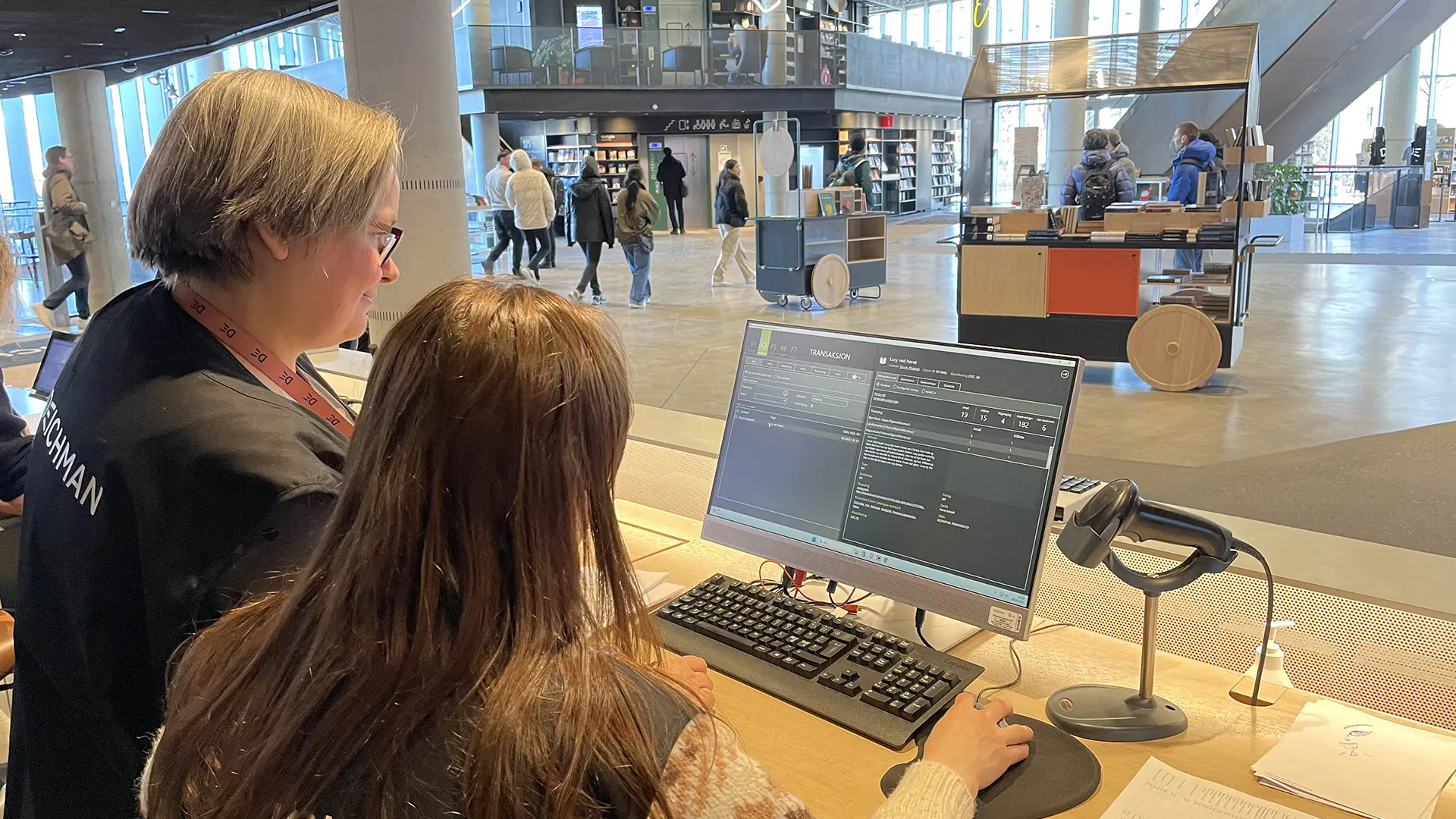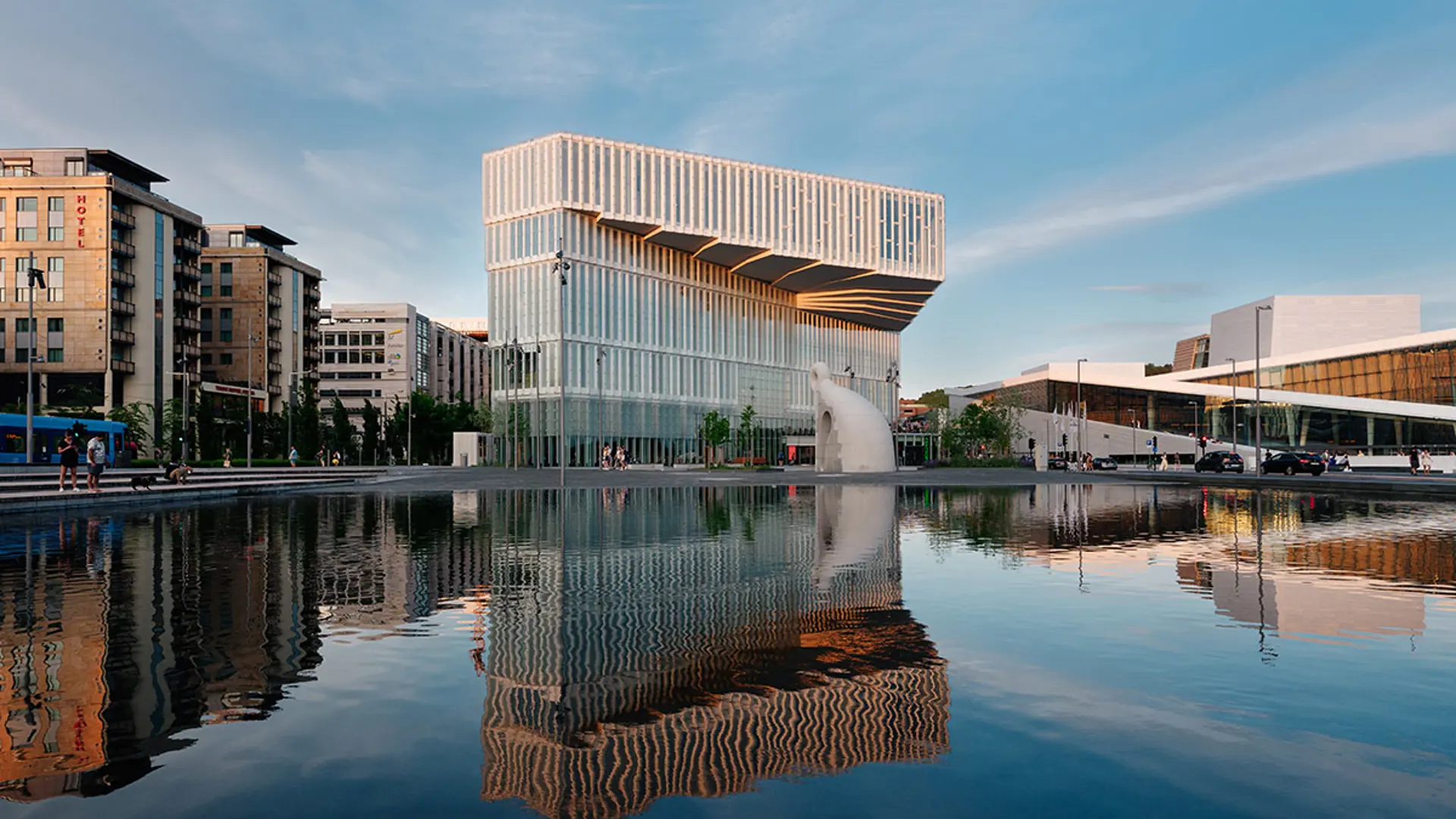Systematic wins important contract for new library system in Sweden
The Danish software company takes another big step into the European library market after winning a tender worth SEK 100 million for Stockholm Public Library.
The impressive city library in the heart of Stockholm and its 40 branches are getting a new library system by the end of 2025. Danish company Systematic, which is also behind Denmark's National Library Solution (FBS), has been chosen to carry out the task following a tender process.

With the contract, Systematic takes another big bite of the Scandinavian market. The customer list already includes all Danish public and school libraries, Oslo's main library Deichman Bjørvika and its 22 branches, as well as close to 100 other Norwegian municipalities.
Earlier this month, Systematic also announced its first library customer in Germany, Bücherhallen Hamburg, which operates all 32 public libraries in the state.
Challenges lead to change
According to Stockholm City Librarian Daniel Forsman, the time has come for innovation and change. He looks forward to introducing the new solution, Cicero.
Facts about Stockholm and the Stockholm Public Library
The municipality of Stockholm has just under a million inhabitants.
More than 420,000 people have library cards in the city of Stockholm.
Stockholm Public Library and its 40 branches have more than 11.7 million visitors annually, of which 6.7 million are digital.
The Stockholm Public Library has over 1.5 million books and conducts more than 9000 public events annually.
"This is the first time in years that we are replacing the entire system. We get many benefits and new opportunities: We get a better and more efficient system with more opportunities for joint innovation, development, and collaboration with other libraries. Replacing a whole library system requires a lot from us, but if we want to create the libraries of the future, we must challenge ourselves and each other in terms of technology, management, visions, and collaboration," he says.
Cicero is a complete software package for modern libraries. It is delivered as a 'software-as-a-service' (SaaS) solution, ensuring the system is always up-to-date and maintained.
Cicero supports and automates workflows for material management, library management, purchasing, circulation and system administration at libraries. Danish Lyngsoe Systems is a subcontractor on the contract and delivers the intelligent materials management system IMMS, which ensures that all libraries always have the correct materials on their shelves.
New technology frees up time for other tasks

Cicero is the librarians' gateway to managing and running the library. Simple processes and advanced data analytics optimise workflows, so librarians only have to perform tasks in one place. A web-based, adaptive user interface also allows librarians to carry Cicero along on mobiles and tablets, making it easy to serve users from, e.g. a bus or a pop-up library.
"It will free up time from repetitive and administrative tasks, and it means that we can spend more time improving the experience for our many visitors instead," says Daniel Forsman.
In addition to implementation, Systematic will also be responsible for support, maintenance, operation, and further system development. Together with Lyngsoe Systems, it will ensure a close integration between IMMS and Cicero.
The contract with Stockholm public libraries is for six years, with the possibility of an extension for up to 12 years.
Systematic’s Jakob Ilum Damsgaard expects that several major libraries in Scandinavia and Europe are preparing to replace their library systems in the coming years. He has no doubt that Systematic, with a proven product like Cicero, faces a concrete opportunity for growth in this market.
"In Stockholm, we deliver a solution rated best on quality, user-friendliness and delivery reliability, and this strengthens our belief that we are able to compete with the largest global players in the industry," he says.
Facts about Cicero
Cicero is one of the world’s most advanced library systems. Developed by the Danish software company Systematic in 2015, it is currently used by all public and school libraries in Denmark, as well as numerous libraries in Norway and Sweden.
Notable customers include Copenhagen Libraries, Bücherhallen Hamburg, DOKK1 - Aarhus Libraries, and the Deichman Libraries in Oslo.a
Cicero is a comprehensive software package designed for modern libraries. Its software-as-a-service (SaaS) model ensures that the solution is continuously developed, updated, and maintained.
Cicero enables seamless workflows for acquisitions, material handling, loan management, and overall system administration.
The solution is web-based and platform-independent, allowing users to access Cicero via smartphone, tablet, or PC. Additionally, Cicero includes a powerful analytics tool, providing libraries with valuable insights into their own data.
Cicero manages over 12 million unique users annually and approximately seven million loans per day. The product is extremely stable, even with 100,000 unique users each day.
Cicero handles more than 12 million unique users a year and approx. 7 million active loans daily. The product is extremely stable, even when accessed by around 100,000 unique users each day.








